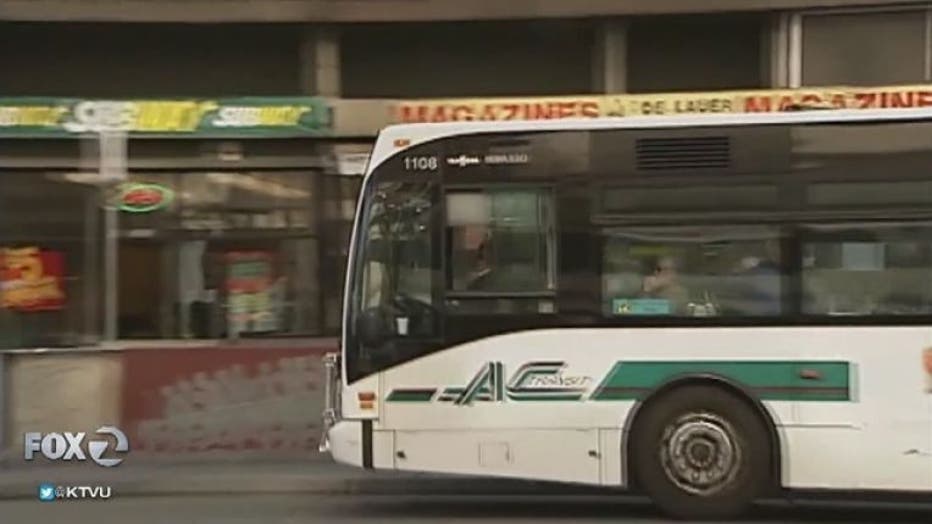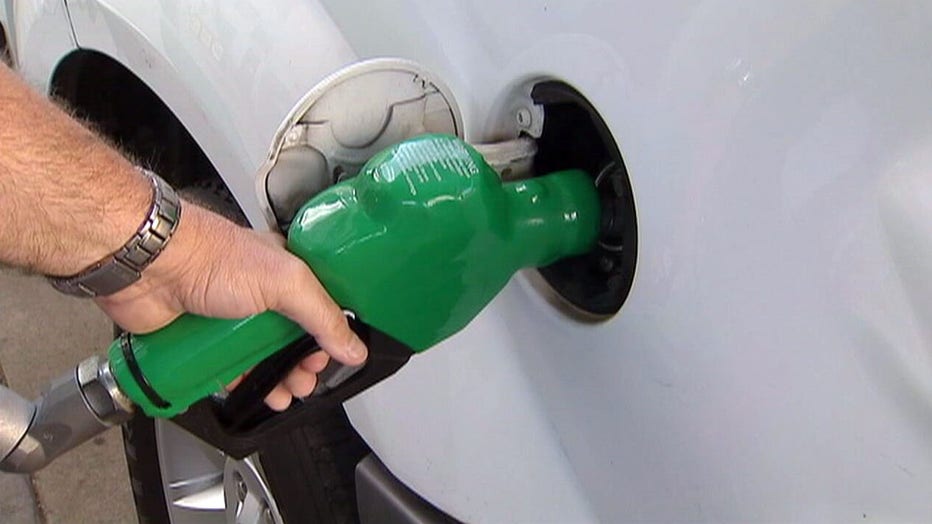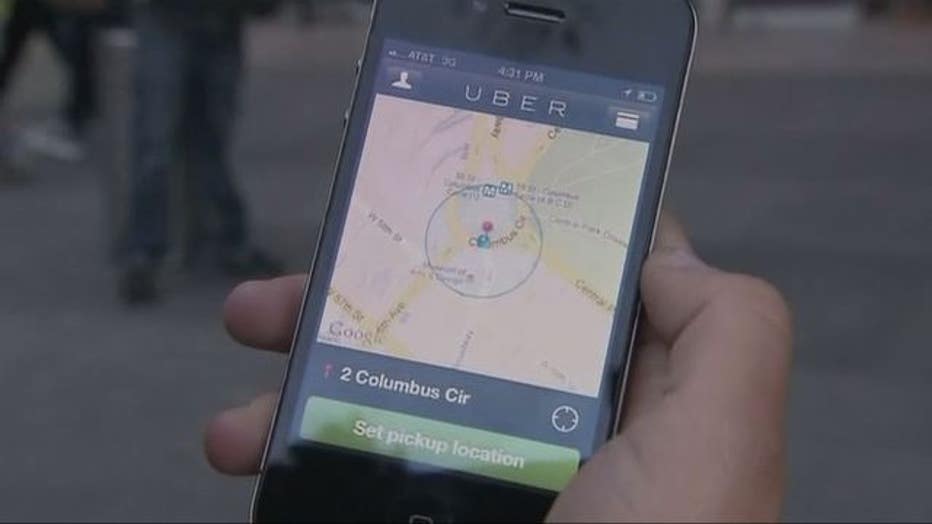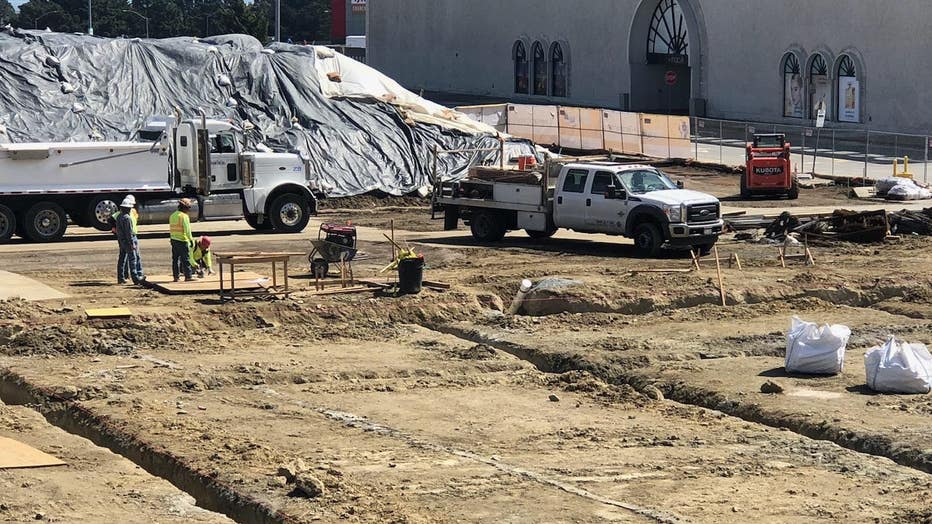What's allowed, and what's not, under the new Bay Area shelter-in-place rules until May 3
OAKLAND, Calif. - The major Bay Area counties clarified and added new shelter-in-place rules to help curb the rising number of coronavirus infections and deaths until at least May 3.
The intent of the order, health officials said, is to ensure that the maximum number of people shelter in their places of residence to the maximum extent feasible to slow the spread of COVID-19 and mitigate the impact on delivery of critical healthcare services to those in need.
Violation of or failure to comply with these rules is a misdemeanor punishable by fine, imprisonment, or both, under California's Health and Safety Code.
The counties participating in these strict orders are: Alameda, Contra Costa, Marin, Santa Clara, San Francisco, San Mateo, and Berkeley
- Playgrounds and most construction banned under new shelter-in-place order
- The complete list of essential workers
What is allowed under the order
People may leave their homes only for what are considered "essential" activities, government functions, travel, business or to perform minimum basic operations for non-essential businesses.
Anyone who is homeless is exempt, but officials urged those sleeping on the streets to seek shelter. Also, people who are unsheltered and living in encampments should, to the maximum extent feasible, abide by 12 foot by 12 foot distancing for the placement of tents, and government agencies should provide restroom and hand washing facilities.
When people do need to leave home, they must strictly comply with social distancing rules, the order states.
Essential businesses are strongly encouraged to remain open but companies should maximize the number of employees who work from home.
People may use public transit only for purposes of performing essential activities or work and transit agencies and people riding on public transit must comply with social distancing rules.

People are also allowed to buy necessary services or supplies for themselves and their family or household members, or to deliver those services or supplies to others, such as, canned food, dry goods, fresh fruits and vegetables, pet supply, fresh meats, fish, and poultry, and any other household consumer products, products needed to work from home, or products necessary to maintain the habitability, sanitation, and operation of residences.
People can engage in outdoor recreation activity, such as walking, hiking, bicycling, and running, as long as they follow social distancing rule. They can go to parks, beaches, and other open spaces as long as they conform to the restrictions on access, such as the number of people allowed there.
Sports or activities that include the use of shared equipment may only be engaged in by members of the same household or living unit.
To provide necessary care for a family member or pet in another household who has no other source of care.
To attend a funeral with no more than 10 people present. Funeral home providers, mortuaries, cemeteries, and crematoriums, may stay open to the extent necessary for the transport, preparation, or processing of bodies or remains.
To move homes, but only if it is not possible to defer an already planned move, if the move is necessitated by safety, sanitation, or habitability reasons, or if the move is necessary to preserve access to shelter. When moving into or out of the Bay Area region, people are strongly urged to quarantine for 14 days. Moving companies can stay open.
People may volunteer at, or obtain services at healthcare operations, including, hospitals, clinics, COVID-19 testing locations, dentists, pharmacies, blood banks and blood drives, pharmaceutical and biotechnology companies, other healthcare facilities, healthcare suppliers, home healthcare services providers, mental health providers, or any related and/or ancillary healthcare services. Healthcare operations also includes veterinary care and all healthcare services provided to animals.
People may provide any services or perform any work necessary to the operation and maintenance of essential infrastructure including airports, utilities (including water, sewer, gas, and electrical), oil refining, roads and highways, public transportation, solid waste facilities (including collection, removal, disposal, and processing facilities), cemeteries, mortuaries, crematoriums, and telecommunications systems (including the provision of essential global, national, and local infrastructure for internet, computing services, business infrastructure, communications, and webbased services).
All first responders, emergency management personnel, emergency dispatchers, court personnel, and law enforcement personnel, and others who need to perform essential services are categorically exempt from this order to the extent they are performing those essential services.

Grocery stores, certified farmers’ markets, farm and produce stands, supermarkets, food banks, convenience stores, and other establishments engaged in the retail sale of unprepared food, canned food, dry goods, non-alcoholic beverages, fresh fruits and vegetables, pet supply, fresh meats, fish, and poultry, as well as hygienic products and household consumer products necessary for personal hygiene or the habitability, sanitation, or operation of residences are allowed.
Food cultivation, including farming, livestock, and fishing; and businesses that provide food, shelter, and social services, and other necessities of life for the economically disadvantaged are allowed.
Newspapers, television, radio, and other media services are allowed.
Gas stations and auto-supply, auto-repair (including, but not limited to, for cars, trucks, motorcycles and motorized scooters), and automotive dealerships are allowed, but only for the purpose of providing auto-supply and autorepair services and not, by way of example, car sales or car washes.

Bicycle repair and supply shops can be open.
Banks and related financial institutions can be open.
Service providers that enable residential transactions (including rentals, leases, and home sales), including real estate agents, escrow agents, notaries, and title companies are allowed, provided that appointments and other residential viewings must only occur virtually or, if a virtual viewing is not feasible, by appointment with no more than two visitors at a time.
Hardware stores can be open.
Plumbers, electricians, exterminators, and other service providers who provide services that are necessary to maintaining the habitability, sanitation, and operation of residences and essential businesses, but not for cosmetic or other purposes, can be open.
Arborists, landscapers, gardeners, and similar service professionals can work, but only to the limited extent necessary to maintain the habitability, sanitation, operation of businesses or residences, or the safety of residents, employees, or the public (such as fire safety or tree trimming to prevent a dangerous condition), and not for cosmetic or other purposes, such as upkeep.
Businesses providing mailing and shipping services, including post office boxes are allowed.
Educational institutions—including public and private K-12 schools, colleges, and universities—for purposes of facilitating distance learning or performing essential functions, provided that social distancing of six-feet per person is maintained to the greatest extent possible, are allowed.
Laundromats, drycleaners, and laundry service providers are allowed.
Restaurants and other facilities that prepare and serve food, but only for delivery or carry out.
Schools and other entities that typically provide free food services to students or members of the public may continue to do so under this order on the condition that the food is provided to students or members of the public on a pick-up and take-away basis only.
Businesses that have the primary function of shipping or delivering groceries, food, or other goods directly to residences or businesses. This exemption shall not be used to allow for manufacturing or assembly of non-essential products or for other functions besides those necessary to the delivery operation.
Airlines, taxis, rental car companies, rideshare services (including shared bicycles and scooters), and other private transportation providers providing transportation services necessary for essential activities and other purposes expressly authorized in this order are allowed.

Home-based care for seniors, adults, children, and pets are allowed.
Residential facilities and shelters for seniors, adults, and children are allowed.
Professional services, such as legal, notary, or accounting services, when necessary to assist in compliance with non-elective, legally required activities and services to assist individuals in finding employment with essential businesses are allowed.
Childcare facilities providing services that enable owners, employees, volunteers, and contractors for essential businesses and essential governmental functions to work are permitted. To the extent possible, childcare must be carried out in stable groups of 12 or fewer and children shall not change from one group to another. If more than one group of children is cared for at one facility, each group shall be in a separate room. Groups shall not mix with each other. Childcare providers shall remain solely with one group of children.
Essential travel is allowed. That includes:
- Travel to care for any elderly, minors, dependents, or persons with disabilities. Travel to or from educational institutions for purposes of receiving materials for distance learning, for receiving meals, and any other related services.
- Travel to return to a place of residence from outside the county.
- Travel required by law enforcement or court order.
- Travel required for non-residents to return to their place of residence outside the county.
- Travel to manage after-death arrangements and burial.
- Travel to arrange for shelter or avoid homelessness.
- Travel to avoid domestic violence or child abuse.
- Travel for parental custody arrangements.
- Travel to a place to temporarily reside in a residence or other facility to avoid potentially exposing others to COVID-19, such as a hotel or other facility provided by a governmental authority.
What's not allowed under the order
Use of recreational areas with high-touch equipment or that encourage gathering, including, playgrounds, outdoor gym equipment, picnic areas, dog parks, and barbecue areas, is prohibited outside of homes, and all such areas shall be closed to public access.
Use of shared facilities for recreational activities including golf courses, tennis and pickle ball courts, rock parks, climbing walls, pools, spas, shooting and archery ranges, gyms, disc golf, and basketball courts is prohibited and those areas must be closed.
Children of owners, employees, volunteers, and contractors who are not in essential jobs may not attend childcare facilities.

Construction crews were working at the Serramonte Shopping Center in Daly City during the coronavirus shelter in place. March 25, 2020 (Office of Dave Canepa)
Construction is not allowed unless it falls into these categories:
- Projects immediately necessary to the maintenance, operation, or repair of essential infrastructure
- Projects associated with healthcare operations, provided that such construction is directly related to the COVID-19 response.
- Affordable housing that is or will be income-restricted, including multi-unit or mixed-use developments containing at least 10% income-restricted units.
- Public works projects if specifically designated as an essential governmental function by the lead governmental agency.
- Shelters and temporary housing, but not including hotels or motels.
- Projects immediately necessary to provide critical non-commercial services to homeless or elderly people and those with special needs.
- Construction necessary to ensure that existing construction sites that must be shut down under this order are left in a safe and secure manner, but only to the extent necessary to do so.
- Construction or repair necessary to ensure that residences and buildings containing essential businesses are safe, sanitary, or habitable to the extent such construction or repair cannot reasonably be delayed.
There are a new host of rules for grocery stores:
- Self-serve items are now forbidden.
- Lids for cups and food-bar type items must be provided by staff; not to customers to grab.
- Bulk-item food bins are not available for customer self-service use.
- Customers may not bring their own bags, mugs, or other reusable items from home.
- Grocery stores must provide contactless payment systems or, if not feasible, sanitize payment systems regularly.

